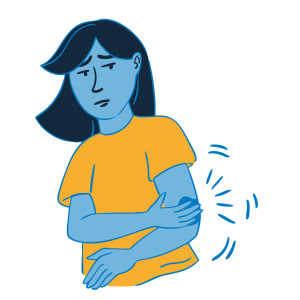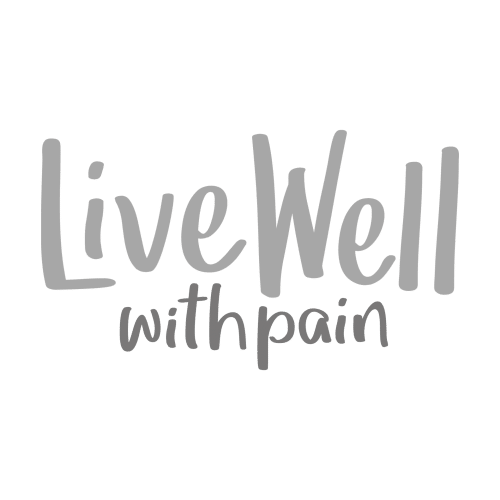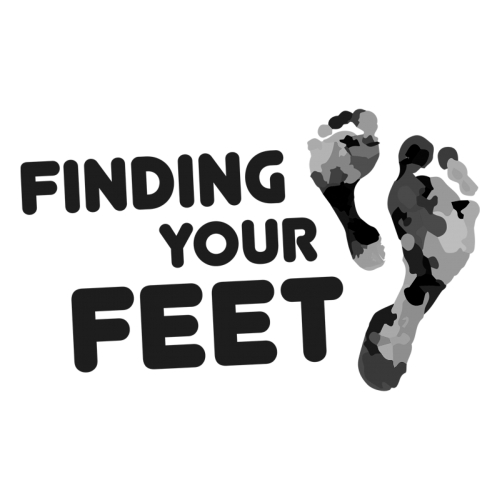Community Pain Champion, Shep, focusses on this common habit when living with persistent pain
Let’s talk about something that might sound small—but can quietly chip away at your confidence: over-apologising.
If you live with persistent pain, you might find yourself saying “sorry” more than you realise.
“Sorry I have to rest.”
“Sorry I need help.”
“Sorry for bringing this up again…”
We get it. You’re not alone. Many people with chronic pain feel the need to apologise for their limitations—as though asking for support, needing time, or making adjustments is somehow an inconvenience to others.
But here’s the truth: your needs are valid. And while being polite is always appreciated, constant apologising can send a message—to others and yourself—that you’re in the wrong for simply looking after your health.
Recognising the Habit

Here are some real-life examples that might sound familiar:
“Sorry to cancel again, my pain is flaring up.”
“I’m sorry for needing extra time.”
“Sorry to ask for help—I know you’ve got enough on.”
“I feel bad always talking about my pain.”
These words may seem harmless, but repeated often, they can reinforce a sense of guilt or low self-worth. The good news? With awareness and a few simple changes, you can begin to reframe how you express yourself.
From “Sorry” to Self-Respect: Making the Shift
We’re not saying to never say sorry again—but rather to reserve apologies for when they’re truly needed, and instead use language that reflects both gratitude and confidence.
Try these swaps:
|
Instead of… |
Try… |
| “I’m sorry to cancel again.” | “Thank you for understanding that I need to reschedule due to my health.” |
| “Sorry for taking so long to reply.” | “Thank you for your patience while I manage my symptoms.” |
| “I’m sorry, but could I ask for some help?” | “I’d really appreciate your support with this.” |
| “Sorry for needing accommodations.” | “I appreciate your willingness to make adjustments so I can participate.” |
| “I feel bad always talking about my pain.” | “Thank you for listening, it means a lot to me.” |
| “Sorry for needing to rest.” | “I recognise that my body needs rest right now, and I appreciate your support.” |
| “Sorry to bother you, I know you’re busy.” | “Thank you for taking the time to support me, I really appreciate it.” |
| “Sorry for the mistake (I made)!” | “Thank you for catching that, I’ll fix it now.” |
| “Sorry!” when bumping into someone | “Whoops! Are you ok?” |
How to Build the Habit
Like any behaviour, this change takes practice. Here’s how to get started:
- Notice your “sorry” moments. Become aware of when and why you’re apologising.
- Pause before speaking or writing. Ask: Is an apology really needed here?
- Practice new phrases. Keep a few go-to responses in your back pocket.
- Reflect on the impact. How do you feel when you replace apology with appreciation?
- Support each other. Invite friends or family to try the switch with you.
Final Thought: You’re Not a Burden
Living with pain is challenging enough. It would be nice not to feel the added pressure of constantly apologising for doing what’s necessary to take care of yourself.
Communicating clearly and kindly—with confidence—can help reduce stress, strengthen relationships, and boost your own self-esteem. You deserve that.
Mini-Challenge
This week, try this:
🌟 Replace one unnecessary apology a day with a gratitude or assertive phrase.
✍️ Bonus: Keep a journal and reflect on how it feels!
Want to Go Deeper?
If this resonated with you, check out more of our resources, and follow us on social media for tips on language, mindset, and navigating life with persistent pain.
Let’s flip the narrative—one word at a time.






























